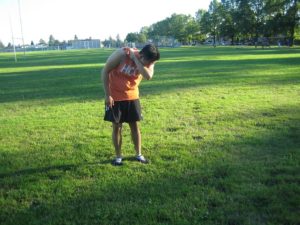Cold sores are reddened blisters filled with fluid that develop close to the mouth or on other parts of the face. In rare circumstances, cold sores can develop on the nose, fingers or within the mouth. They are usually grouped together as patches and can last for 2 weeks or longer.
The usual virus known as herpes simplex is responsible for causing cold sores. They can also spread from one individual to another via close contact such as kissing. These sores are highly contagious even if they are not visible.
Even today, there is no treatment for cold sores and they might recur without warning. Certain medications can be utilized to manage the sores as well as prevent them from recurring.
What are the causes?
Cold sores are triggered by the herpes simplex virus. There are 2 types of the virus – herpes simplex type 1 virus and herpes simplex type 2 virus.
The visible sores are highly contagious but can spread even if they are not seen. An individual can acquire the herpes simplex virus via contact with infected individuals through sharing cosmetics, kissing or sharing food.
Once an individual acquires the virus, it could not be cured but can be managed. When the sores have healed, the virus stays dormant in the body. This simply means that new sores can manifest at any period once it reactivates. Some individuals have reported outbreaks if their immune system is weak such during times of stress or if sick.

What are the indications of cold sores?
Initially, there is a burning or tingling sensation on the lips or face several days before a sore develops. This is the ideal time for treatment to start. When the cold sores form, there is an elevated, reddened blister that is filled with fluid.
It is usually tender to the touch and painful. In most cases, there might be more than a single sore present. The sores can stay for up to 2 weeks and considered contagious until they crust over. The initial sore might not manifest for up to 20 days after acquiring the virus. Other symptoms that can occur during an outbreak include:
- Muscle aches
- Fever
- Swollen lymph nodes
It is vital to consult a doctor right away if the individual develops any eye symptoms during an outbreak. The infections triggered by the herpes simplex virus might cause lasting loss of vision if not promptly treated.
